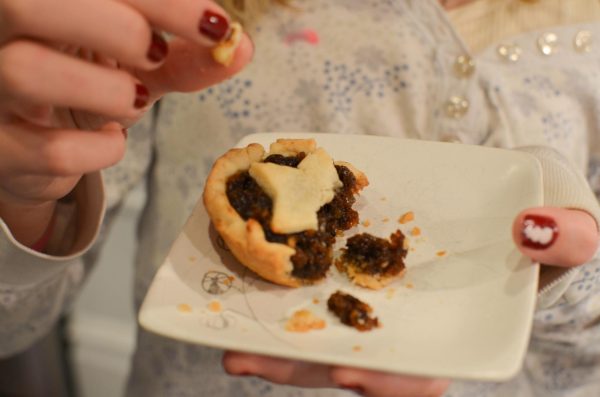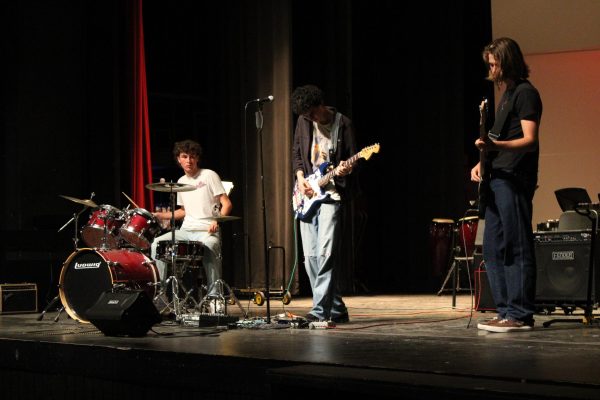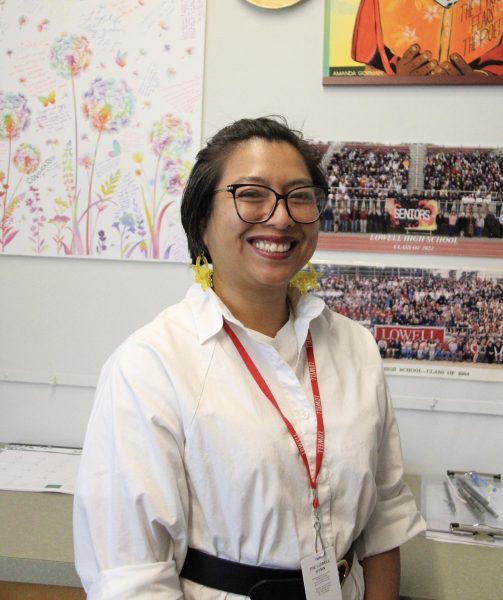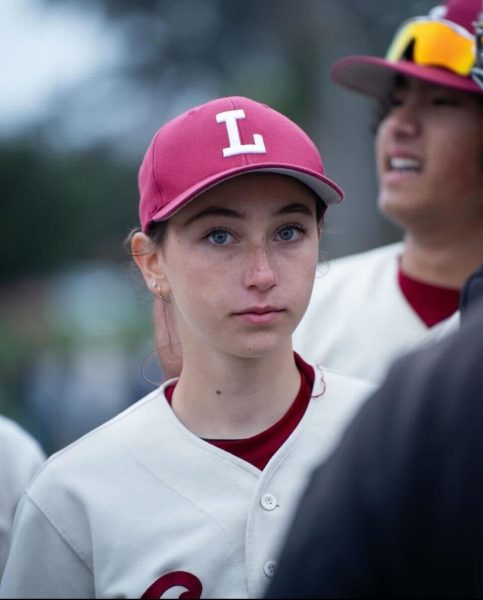Scramble and solve: Speedcuber finds hope in community
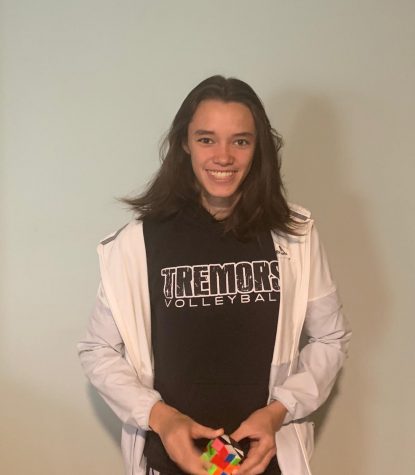
It’s competition day for sophomore Lacey Dilworth. Combined with the rumble of morphed chatter in the packed venue, her pounding heartbeat almost drowns out the announcer’s voice calling up her event. She wrings her hands as her Rubik’s Cube is taken to be scrambled elsewhere, wiping them nervously on her sweatpants. The cube is set on the table in front of her, a short inspection period is permitted, and then suddenly the timer has begun. Dilworth’s fingers fly across the faces, edges, and corners as all of her other thoughts fade away. By the time she drops the cube, fully solved, onto the table, a wave of familiar cheers erupts. Glancing up at the timer, she reads: five seconds.
Solving these puzzles in record time is a part of Dilworth’s daily routine.
Dilworth is an internationally ranked speedcuber, someone who solves Rubik’s Cubes, or one of its many derivatives, with high speed as a goal. Before the COVID-19 pandemic, she was a regular competitor at local, regional, and national tournaments. Since the lockdown, however, all competitions have been canceled, including the 2020 North American Championships Dilworth would’ve attended last June in Canada. As a result, her motivation has declined and the length of her practice sessions are a fraction of what they used to be. Nevertheless, the inclusive nature of the cubing community has kept her from withdrawing for good.
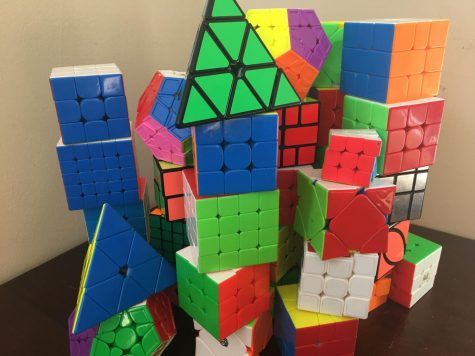
Dilworth’s journey began in 8th grade when she first took up the hobby, and her commitment has only grown from there. At first, her motivation to increase her speed stemmed from jealousy of and admiration for the skills of a younger student at her school. As she surpassed her first rival and continued with solving, Dilworth began to genuinely enjoy the hobby and strove to improve even further. She averages about four hours of dedicated practice per day, experimenting with different algorithms and challenging scrambles. She eventually became world-class at solving the Square-1, a more nuanced variant of the traditional 3×3 Rubik’s Cube. Dilworth is ranked among the top 150 in the world for this separate event, and normally places second or third in California. Her records are a 6.9-second average of five solves, and a 3.8-second single solve.
But Dilworth doesn’t just cube to satisfy her competitive instincts, she does it to manage stress. To Dilworth, the routine she finds in solving cubes is comforting and stress-relieving because of its reliability. “The emotions and the thought process are the same every time,” she said. “So no matter what’s happening, I could always have a cube.” At competitions where the effort she invests finally “comes to fruition,” this feeling is accompanied with satisfaction and pride. “Doing well when you’re put on the spot is obviously a really good feeling,” she said.
But Dilworth doesn’t always get this feeling of accomplishment. Placing poorly at competitions evokes feelings of frustration and disappointment. At one particular tournament held in Los Angeles, she placed 4th despite being one of the favorites to win. Dwelling on how she had frozen up during the final round where her performance mattered most, Dilworth felt as though she had disappointed her family, her supporters in the community, as well as herself. In spite of the negative emotions that arose from this experience, defeat did not prevent Dilworth from participating in later competitions. “If you lose at something, that feeling of loss is what motivates you to not feel it again,” she said.
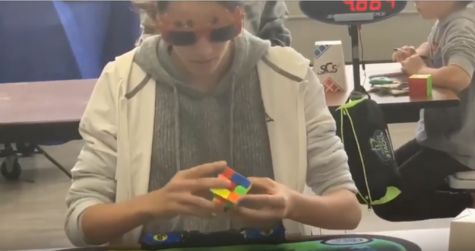
This incentive has persisted across Dilworth’s cubing career, even as the root reasons behind her commitment changed as she grew older and gained more experience. During her freshman year of high school, cubing began to feel more and more like an obligation rather than a lighthearted pastime. Her drive to continue was fueled primarily by the thought that quitting would only be a waste of time and effort. Gradually, her need to prove her worth in competition overtook any thoughts of self-improvement and joy. “Once you progress and you get increasingly good at something, it’s about beating other people,” she said. “I don’t even remember how it feels to really, really love it.”
The global pandemic caused the joy Dilworth gets from cubing to decline even further. With competitions canceled and drastic shifts in her daily life becoming common, she has lost much of her motivation to cube. Dilworth expressed disappointment in her tendency to sacrifice practice sessions to indulge in other, less productive activities, such as watching hours of online videos. “Now, I would be lucky to solve for half an hour per day,” she said. “I don’t even see a future for cubing because you don’t know when competitions are going to come back.”
Despite this, she remains committed to the hobby because of the community she discovered. According to Dilworth, the cubing community is a competitive yet inclusive and supportive space, where everyone is unified by their passion for solving regardless of skill level or age. The connections and friendships she has made have helped Dilworth mitigate her own cutthroat mindset. “At the end of the day, you’d rather see the community progress than have [yourself] win,” she said. “It’s a deeply compassionate community that obviously a cube can’t replicate.”
With regard to her commitment to cubing itself, Dilworth has decided to take occasional breaks from practicing. She emphasized the importance of being patient and allowing herself time to rekindle her passion for cubing, especially during the absence of competition. “If you burn out, the odds of you quitting are higher than if you take a break when you’re not motivated,” Dilworth said. “If you force yourself to practice, you might get better, but you won’t feel better about getting better.”
Although her future with cubing is unclear, Dilworth has not lost hope that she will revive her love for it. Anticipating that her journey is far from over, Dilworth believes that the friendships she has built through the cubing community will keep her strong through lapses in self confidence and sense of purpose. “I’m not losing hope,” she said. “I don’t think I’d trade those for much in this world.”
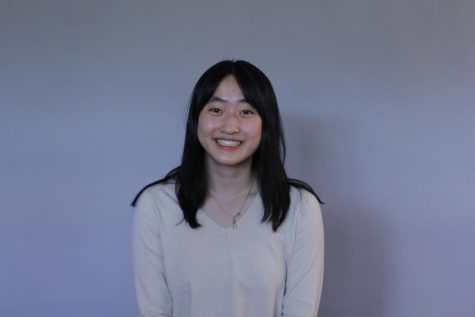
Angela is a senior at Lowell who recently bought a membership at the Stonestown movie theater. In addition to watching movies, she loves to sing and is part of Lowell’s concert choir. Despite this and her 6 years of experience playing volleyball, her greatest skill is procrastinating.


